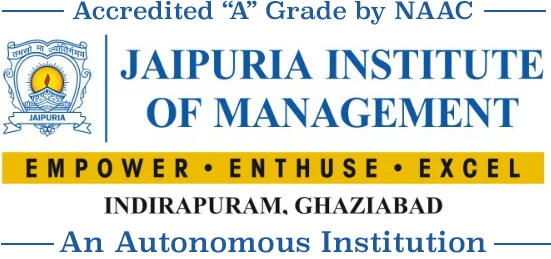Introduction:
Gandhi Jayanti, the celebration of Mahatma Gandhi’s birthday, is not only a tribute to a great leader but also a moment of reflection on his enduring principles. One facet of Gandhi’s legacy that resonates deeply with the Jaipuria Institute of Management community is his vision for sustainable living. This vision aligns seamlessly with the institute’s commitment to responsible management practices, especially in the context of sustainability.
Gandhi’s Vision for Sustainability:
Gandhi’s wisdom went beyond political and social reform; it extended to the way we interact with the environment. He believed in the power of simple living, self-sufficiency, and harmony with nature. In Gandhi’s view, these were not mere lifestyle choices but moral imperatives.
He advocated for minimizing waste, promoting local industries, and conserving resources. His belief in sustainable agriculture and self-reliance resonates strongly with contemporary sustainability ideals.
Sustainability in Modern Business:
Fast forward to the 21st century, and we witness a global awakening to the importance of sustainability in business. Organizations worldwide are acknowledging their responsibility to address pressing global challenges, including climate change, resource depletion, and social inequality.
Case Studies in Sustainable Business:
Consider the success stories of companies like Apple, Unilever, and Tesla. These organizations have not only embraced sustainable practices but have also thrived. Their examples demonstrate that businesses can reduce their environmental impact, increase profitability, and enhance their brand image by embracing sustainability.
Jaipuria’s Commitment to Sustainability:
The Jaipuria Institute of Management, a pioneer in business education, has made sustainability a core part of its ethos. The institute regularly hosts sustainability conferences, fostering discussions on innovative sustainability practices. On campus, eco-friendly initiatives, waste reduction programs, and energy-efficient practices exemplify the commitment to sustainable living.
The curriculum also incorporates sustainability into various programs, ensuring that future business leaders are well-versed in these critical concepts.
Incorporating Sustainability into Modern Management:
Modern management strategies are evolving to embrace sustainability. Concepts like sustainable supply chain management, green marketing, renewable energy adoption, and ethical investing are becoming mainstream. The realization is clear: sustainability is not just a moral obligation; it’s a strategic advantage.
Gandhi’s Ideals in Business Leadership:
Gandhi’s ideals of truth, non-violence, and empathy provide a foundation for ethical business leadership. These principles guide leaders to make decisions that prioritize people and the planet alongside profits. Ethical leadership, in turn, plays a pivotal role in driving sustainability efforts within organizations.
As we celebrate Gandhi Jayanti, we are reminded that his vision for sustainable living remains as relevant as ever. Gandhi’s ideals find resonance in the evolving landscape of business management, especially in the realm of sustainability.
In the words of Prof. Dr. Daviender Narang, Director of the Jaipuria Institute of Management, “Sustainability is not a choice; it’s a responsibility. It’s about safeguarding our planet for future generations while ensuring the success of our businesses today.”
The Jaipuria Institute of Management stands as a torchbearer for these principles, producing future business leaders who not only understand the importance of sustainability but are also equipped to drive positive change in the corporate world.
Ready to embark on your journey towards sustainable leadership? Explore our MBA program and be a part of this transformative experience. Apply Now to join our community of change-makers.
Gandhi’s vision serves as a guiding light, illuminating a path toward responsible, ethical, and environmentally responsible management practices.




